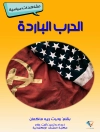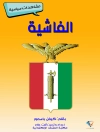This book addresses questions about theories of heritage, its methodologies of research, and where its boundaries lie with tourism, urban development, post-disaster recovery, collective identities, memory, or conflict. This book is a collection of heritage studies from a critical perspective as a product of the 2018 ACHS (Association of Critical Heritage Studies) Conference in Hangzhou, the largest conference of its kind in Asia. The contributors cover a wide spectrum of issues in heritage studies, such as heritage management, accessibility to heritage, heritage conservation and heritage policy, and heritage representation. It also examines the various contexts within which heritage emerges and how heritage is constructed within that context. Analyses are based on not only representations of heritage but also on the performativity. Explorations touch upon community involvement, landscape history, children’s literature, endangered food, architecture, advertisement, allotment garden, and gender and visual art. As heritage has always been a locus of contested verities, the book offers a variegated approach to heritage studies. It provides students and scholars new perspectives on heritage study.
表中的内容
1. Accessibility of Castles: Reality, Imagination and Good Practices for Memory and Dissemination.- 2. Agroecological Heritage: Elucidating the Place of Cycads in Indigenous Mesoamerican Epistemologies.- 3. Relationships Between Urban Anthropology and Cultural Heritage in São Paulo, Brazil.- 4. Mosques and Modernism in the Three Phases of the Turkish Republic.- 5. The Grey Area of Gender in Intangible Cultural Heritage: Analysis of Japan’s Inscribed Elements on the Representative List of the Intangible Cultural Heritage of Humanity.- 6. The Crafting of a New Act on the Protection of Cultural Property- the German Case.- 7. Advertisement: Construction and Communication of Memory (A Study on Media Advertisement in Malayalam- 8. An Indian Language).- 9. Association Members with a Migration Background as “Unexpected” Heirs of Cultural Heritage in Allotment Garden Associations.- 10. Use the Impact of World Heritage Designation at Jiaohe Site in Xinjiang, China.- 11. The Practice of Display: Producing ‘Cultural Heritage’ and Framing ‘Expertise’. The Pergamon Museum in Berlin.- 12. Social Innovations in Museum and Heritage Management.- 13. Challenges of Research on Trans-Boundary Cultural Heritage in Southern Africa.- 14. “Tolerance” in Urgent Need of Conservation: A Case Study of the Crumbling Jaina Heritage in Pakistan.- 15. Linguistic Representations of “Home” in a French–Kanak Children’s Book: New Perspectives on Intangible Cultural Heritage.- 16. Staying in Academia or Facing the Public: University Museums in China Today.- 17. Gender and Human Rights within UNESCO’s International Heritage Discourse: A Case Study of the Convention for Safeguarding the Intangible Cultural Heritage.- 18. The U.S.-Mexico Border in Visual Art by Chicanas/os – Transcending National Barriers of Cultural Heritage.- 19. Construct the Landscape History via the Timeline Graph.
关于作者
Dr. Le Cheng is Full Professor of legal discourse and translation and Full Professor of law at Zhejiang University. He also serves as Dean of the Institute of Cross-Cultural and Regional Studies, Director of Centre for Legal Discourse and Translation, Director of Centre for Contemporary Chinese Studies. Among others, he is Editor of Translated Series on Heritage Law (China Publishing House of Democrary and Legal System), Editor-in-Chief of International Journal of Legal Discourse (De Gruyter), Co-Editor of Social Semiotics (Taylor & Francis), and Editor of International Journal for the Semiotics of Law (Springer). He has published widely in the areas of heritage studies, cross-cultural studies, semiotics, discourse studies, and interdisciplinary studies.
Jianping Yang is Research Fellow in the Institute of Cross-Cultural and Regional Studies. Her research interest covers cultural memory, heritage narration, and heritage discourse. She has carried out research projects including Exploration of the Cultural Memory of Quzhou Shuitingmen Historical Community and Longjing Cultural Memory Research. She was one of the authors of the book 《坊巷遗韵:衢州水亭门历史文化街区》. Currently, she is engaged in a history and memory research project in Sandefan Village,Shandong Province.
Dr. Jianming Cai is Full Professor at the Institute of Geographical Sciences and Natural Resources Research (IGSN-RR), Chinese Academy of Sciences (CAS). He got his First Degree on urban planning and economic geography from Beijing University, Master Degree on GIS for urban applications from ITC of the Netherlands, and his Ph.D. on sustainable urban development from the University of Hong Kong. He has published more than 150 papers so far in academic journals both in Chinese and English, plus many consultant reports. He frequently serves as Senior Consultant or Expert on sustainable urbanization, regional and urban development, regional cooperation and integration, culture-embedded place-making, urban agriculture, and food security to both international agencies such as World Bank, ADB, EU, Ford, IDRC, DGIS, Lincoln Institute and Chinese governments, as well as private sectors such as Shui On Land. He is also Active Member of many academic associations including Vice-chairman of Chinese Urban Agriculture and Recreational Agriculture Association and Member of Chinese Urban and Regional Planning Association. Dr. Cai’s current research focuses on urban–rural sustainable development with emphases on urban and peri-urban agrotourism, urban–rural linkages, spatial restructuring from cultural perspectives, urban renewal, and innovative space making.












